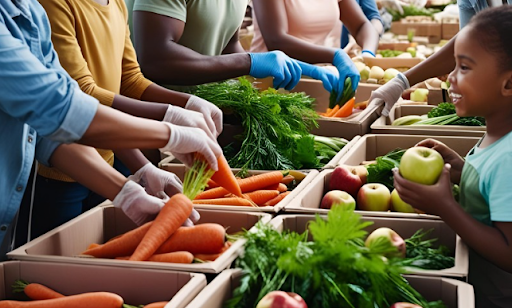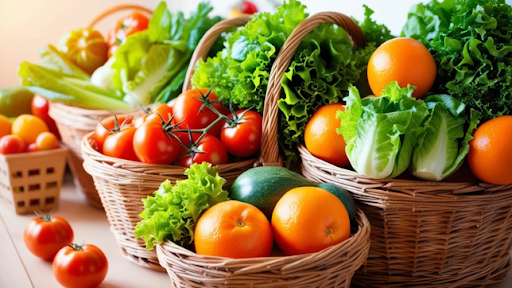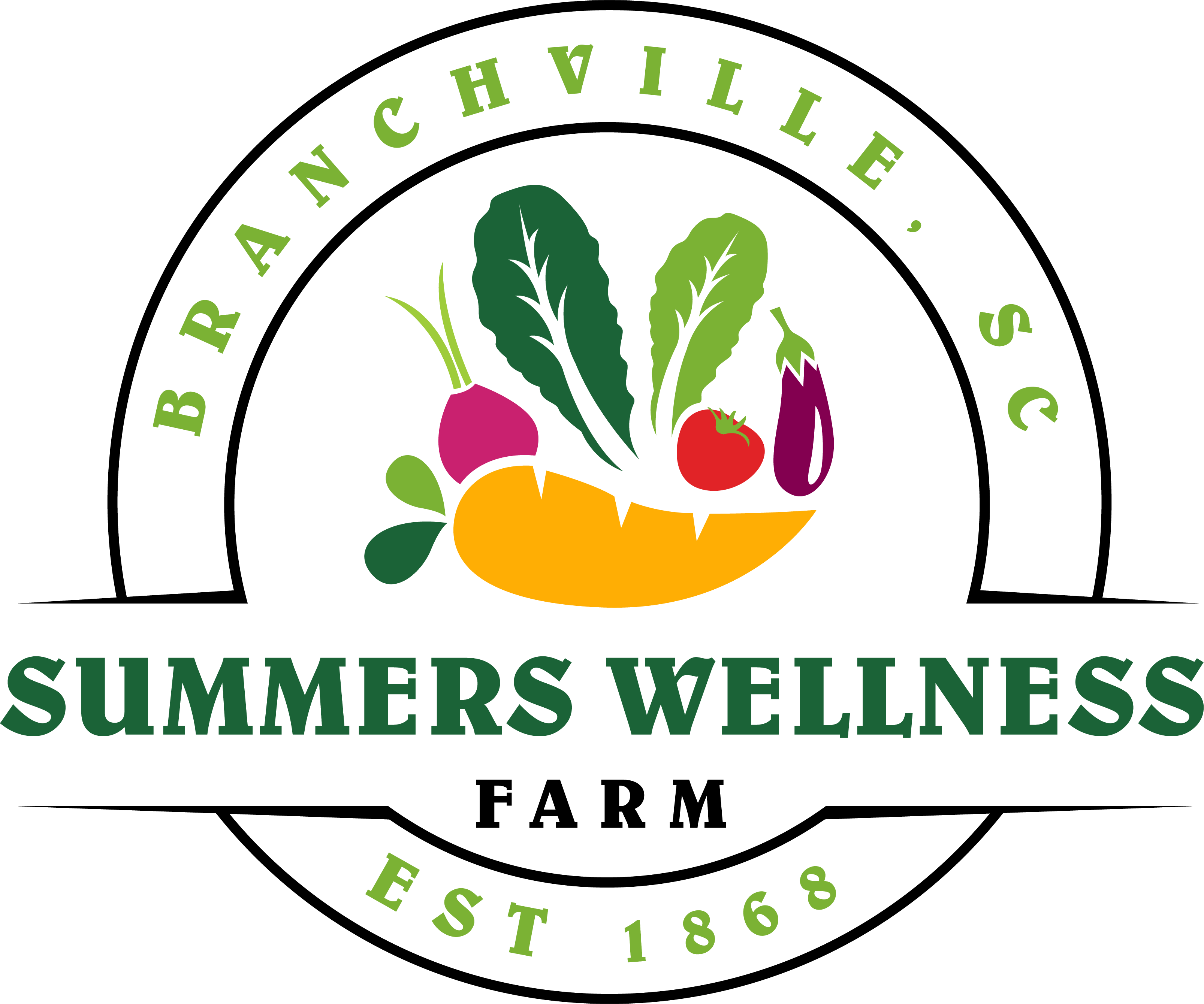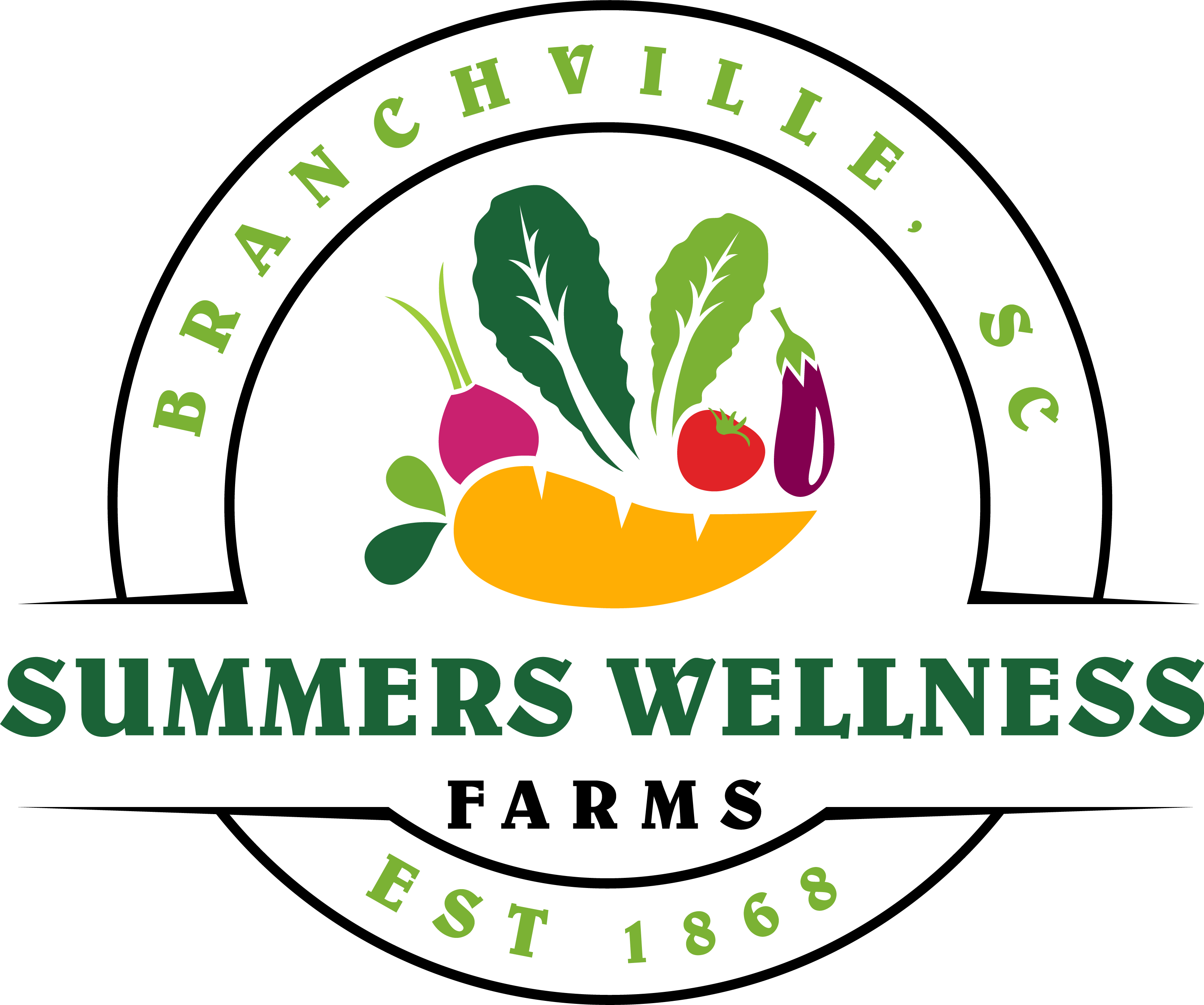Organic Produce for Food Banks
Fresh, Nutritious Produce for Healthier Children.
Certified organic vegetables and fruits, delivered fresh to schools and childcare facilities to support healthy eating habits for kids.
Organic Produce for Food Banks: Fresh, Nutritious, and Sustainable Support for Communities
Food banks play a crucial role in providing nourishment to individuals and families in need. However, access to fresh, organic produce remains a significant challenge. Many food banks rely on non-perishable goods and conventionally grown fruits and vegetables, which may lack the nutritional quality and purity that organic produce offers.
At Summers Wellness Farm, we are committed to bridging this gap by supplying food banks with high-quality, organic produce. By partnering with us, food banks can offer healthier, more sustainable food options to the communities they serve.
Let’s make organic food a reality! – Connect with us today to explore how your food bank can bring healthier food to those in need.

Partner with Us for Nutritious Farm-to-Table Produce – Request More Info
The Organic Produce Dilemma
As a caterer, finding high-quality organic produce can often be a struggle. The local market may not offer the variety or consistency needed to meet your needs, and larger wholesalers might not prioritize quality. This often results in caterers being forced to settle for conventional produce, which can compromise their meals’ taste, freshness, and nutritional value. Additionally, organic produce is frequently more expensive, and finding a reliable supplier that can provide consistent deliveries on time can add an additional layer of difficulty.
Caterers are expected to deliver high-quality food while maintaining food safety standards and offering diverse menus. When the quality of ingredients is subpar, it can hurt your business. It’s essential to source ingredients that align with customer expectations for healthy, fresh meals.
With the rise in popularity of organic foods, you must ensure your catering services meet this growing demand. Partnering with a reliable, trustworthy source for organic produce is critical to your success—and that’s where Summers Wellness Farm comes in.
From Farm to Food Bank: Overcoming Obstacles to Organic Produce Access
While food banks are dedicated to fighting hunger, providing fresh, organic produce remains a significant challenge. Most food assistance programs rely on shelf-stable items and conventionally grown produce due to cost constraints and supply limitations. Despite the rising awareness of the health benefits of organic food, many food banks struggle to integrate it into their offerings. Several key barriers prevent widespread access to organic produce for food-insecure individuals, making it difficult for food banks to provide the highest-quality nutrition to those who need it most.

- Cost Limitations: Organic produce is often priced higher than conventionally grown food due to the labor-intensive farming methods, certification costs, and smaller-scale production. Many food banks operate on tight budgets, making allocating funds for premium-quality food difficult, even when it offers superior health benefits.
- Limited Availability: The supply of organic produce can be inconsistent, especially in regions where organic farming is less common. Since food banks primarily rely on donations and bulk purchasing from suppliers, they may find securing a steady supply of organic fruits and vegetables challenging.
- Short Shelf Life: Unlike processed or canned goods, fresh produce—especially organic—has a shorter shelf life. Organic produce can spoil more quickly without preservatives or chemical treatments, requiring efficient transportation, refrigeration, and distribution systems that some food banks may not have.
- Lack of Awareness: Some food bank operators and donors may not be fully aware of the benefits of organic produce or how to incorporate it into food assistance programs. Without education on why organic food is important, conventional produce and shelf-stable items often take priority.
- Storage and Infrastructure Issues: Many food banks lack adequate refrigeration or storage facilities to keep fresh produce at optimal conditions. Food banks may hesitate to accept perishable organic donations without proper infrastructure for fear of waste and spoilage.
- Donation Preferences: Individuals and businesses donating to food banks often opt for non-perishable goods or lower-cost conventional produce to maximize the quantity of food provided. As a result, organic options remain underrepresented in food donations.
- Distribution Challenges: Ensuring that organic produce reaches recipients while still fresh requires a well-coordinated distribution network. Many food banks distribute food through partner organizations, churches, and shelters, and not all of these entities have the means to store and transport perishable items effectively.
Bridge the gap today! – Reach out to Summers Wellness Farm to overcome the challenges of organic food accessibility. Let’s work together!
Bringing Organic Goodness to Food Banks
We are dedicated to making organic produce more accessible to food banks through our innovative farm-to-food-bank program. Our approach includes:
Direct Supply Partnerships
We establish direct partnerships with food banks to provide them with fresh, locally grown organic produce. This direct farm-to-food-bank model eliminates middlemen, reducing costs and ensuring the freshest possible produce reaches those in need.
Subsidized Organic Produce Donations
We work with sponsors, donors, and grant programs to subsidize the cost of organic produce for food banks. By leveraging community support and fundraising initiatives, we can provide high-quality organic produce at a reduced or no cost to food banks.
Seasonal Produce Availability
Our farm operates year-round, ensuring a steady supply of seasonal organic vegetables and fruits. Food banks can receive a variety of produce depending on the season, enhancing the nutritional diversity of the meals they offer.
Efficient Distribution Systems
We collaborate with food banks to streamline delivery schedules and storage solutions, ensuring that organic produce remains fresh and accessible. Our logistics team helps food banks implement best practices for preserving the shelf life of fresh produce.
Community Engagement and Education
We believe that education is key to promoting healthier eating habits. In addition to supplying food banks with organic produce, we offer workshops and informational materials to help recipients understand the benefits of organic food and how to incorporate it into their diets effectively.
Waste Reduction Strategies
We implement innovative methods to minimize food waste, such as quick-turnaround deliveries, produce preservation techniques, and partnerships with local meal preparation initiatives that use surplus produce to create nutritious meals.

Uniting for Nutrition: Partnering to Bring More Organic Produce to Food Banks
Providing organic produce to food banks is a collective effort that involves farmers, donors, community organizations, and policymakers. Expanding access to organic food requires:
- Stronger Partnerships: Working with local businesses, non-profits, and government agencies to increase funding and resources for organic food distribution.
- Public Awareness Campaigns: Educating donors and supporters on the importance of organic produce in food banks and encouraging more contributions.
- Innovative Solutions for Affordability: Developing cost-effective strategies, such as bulk purchasing and farm surplus programs, to make organic food more accessible.
- Improved Logistics and Storage: Implementing better storage facilities and transportation methods to extend the shelf life of organic produce.
- Advocacy for Policy Change: Supporting initiatives that promote sustainable farming and food equity to ensure long-term access to organic food for those in need.
Grow the future with Summers Wellness Farm – Partner with us to bring fresh, organic produce to food banks and make a real difference in your community. Let’s plant the seeds of change together!
Providing Freshness and Nutrition: How Your Food Bank Can Work with Us
If you operate a food bank and want to provide fresh, organic produce to your community, partnering with Summers Wellness Farm is a simple and effective solution. Here’s how you can get started:
- Reach Out to Us – Contact us to discuss your food bank’s specific needs and capacity.
- Develop a Custom Plan – We’ll work with you to create a supply plan that fits your budget, storage capabilities, and distribution model.
- Set Up Regular Deliveries – We’ll establish a consistent delivery schedule to ensure your food bank receives fresh, organic produce regularly.
- Engage Your Community – Leverage our educational resources and community programs to raise awareness about the importance of organic food in food assistance programs.
- Expand Access to Organic Produce – Work with local businesses, community organizations, and individual donors to increase the availability of organic food options for those in need.
Fresh, Organic, and Ready to Share
By choosing organic produce from Summers Wellness Farm, food banks can take a major step toward improving the health and well-being of the communities they serve. We make it easy and affordable to provide fresh, nutrient-dense, and sustainably grown produce to those in need.
Help us nourish more lives – Together, we can provide access to the organic produce every family deserves. Connect with Summers Wellness Farm to make healthier food a reality for those facing food insecurity.

